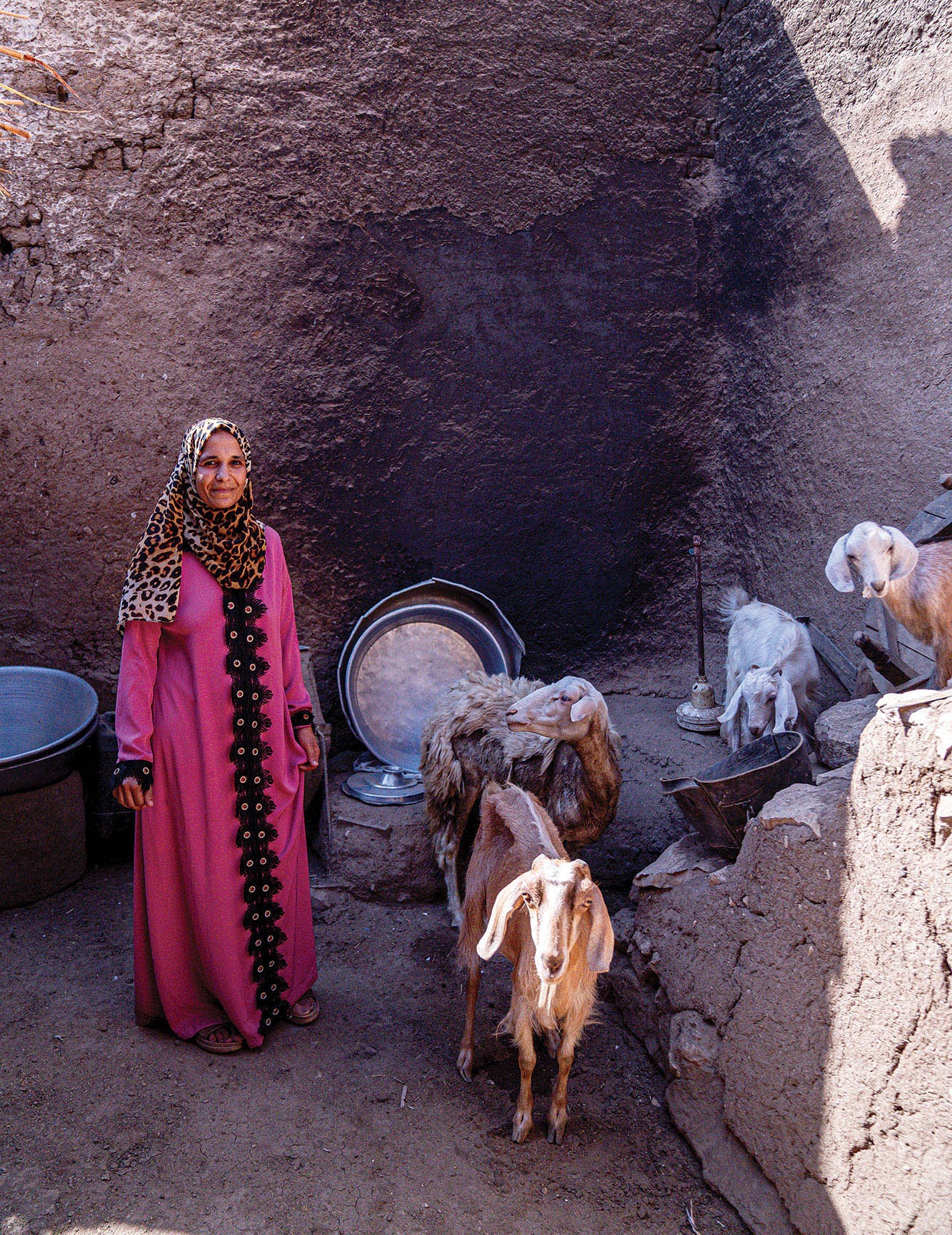The Abdul Latif Jameel Poverty Action Lab MENA at AUC is helping people living in extreme poverty build a better life.
A gift of goats and sheep is one element of a broader project that the Abdul Latif Jameel Poverty Action Lab (J-PAL) Middle East and North Africa is assessing to help thousands of Egyptians graduate out of poverty, with AUC’s help.
As a research institute, J-PAL Middle East and North Africa — housed at AUC’s Onsi Sawiris School of Business — has completed over 60 studies of different types of poverty interventions across the region. One of its most influential evaluations was of Bab Amal (A Door of Hope). In the initial pilot of this multifaceted program, over 3,400 households experiencing extreme poverty received a “graduation bundle” that included an income-generating asset (such as medium-size livestock, mostly goats and sheep), basic business training, regular coaching through home visits and short-term cash support.
“Across diverse low- and middle-income country settings, particularly in African contexts, we’ve seen the Targeting the Ultra-Poor model deliver lasting gains that often persist for years after programs are phased out,” says Ahmed Elsayed, associate professor of economics and executive director of J-PAL MENA at AUC. “With Bab Amal, we tailored this approach to Egypt’s realities, focusing on Assiut and Sohag, two regions in the country with high poverty rates. The program offers a scalable, cost-effective path out of extreme poverty.”
"The program offers a scalable, cost-effective path out of extreme poverty."
Building on cross-country evidence, J-PAL MENA at AUC worked in coordination with BRAC international development organization, the original ideator of the global Graduation approach, and the Sawiris Foundation for Social Development, which is funding the project, to collaboratively develop and test this model in Egypt. The Giving Without Limits Association in Assiut and the Human Development Egyptian Association in Sohag are implementing Bab Amal, and J-PAL MENA is supporting efforts to scale up the program in the country by providing technical assistance and leading the evaluation of its impact.
“Drawing on both global evidence and our knowledge of the local context, J-PAL MENA identified the Graduation approach as especially promising for Upper Egypt,” says Adam Osman, co-scientific director of J-PAL MENA. “We worked with partners to adapt and rigorously test it, and we also designed a lower-cost version that — if successful — will be the world’s first experimental test of how big a ‘big push’ really needs to be to help people escape poverty.”
“Drawing on both global evidence and our knowledge of the local context, J-PAL MENA identified the Graduation approach as especially promising for Upper Egypt,."
The results of the study demonstrated a significant positive impact of the approach, including evidence that the program improved economic and social outcomes for participants even over 40 months after implementation, with high success rates.
The evaluation also comparatively analyzed which components of the program were most cost-effective. It found increased long-term wealth in the form of valuable livestock, a sustained decrease in food insecurity and confirmation that even a scaled-down “half-cost” version of the program still delivered meaningful results. The program also demonstrated a rise in women’s employment in some cases, from 13% to 30%.
“Our results offer policymakers a proven and adaptable strategy to reduce extreme poverty,” says Osman.
“Our results offer policymakers a proven and adaptable strategy to reduce extreme poverty."
Building on the successful pilot, J-PAL MENA at AUC will now start working with Egypt’s Ministry of Social Solidarity, the Sawiris Foundation for Social Development, and the United Nations Economic and Social Commission for Western Asia to scale up the program to 100,000 households.
Photo Credit: Sawiris Foundation for Social Development


